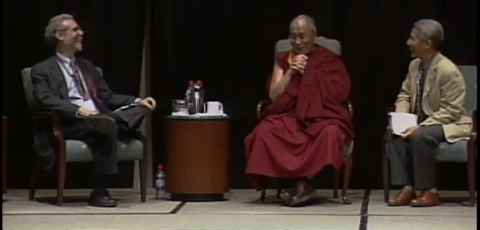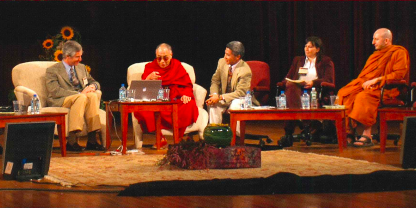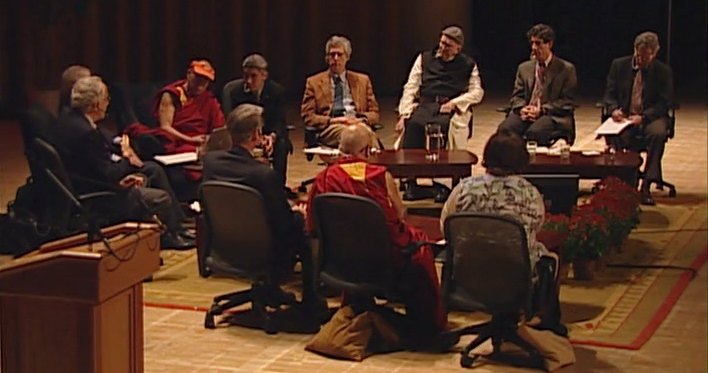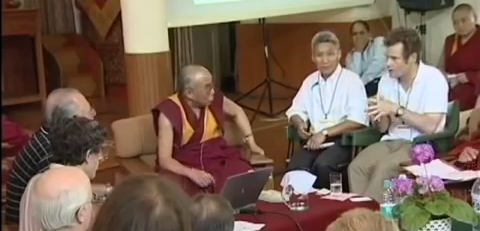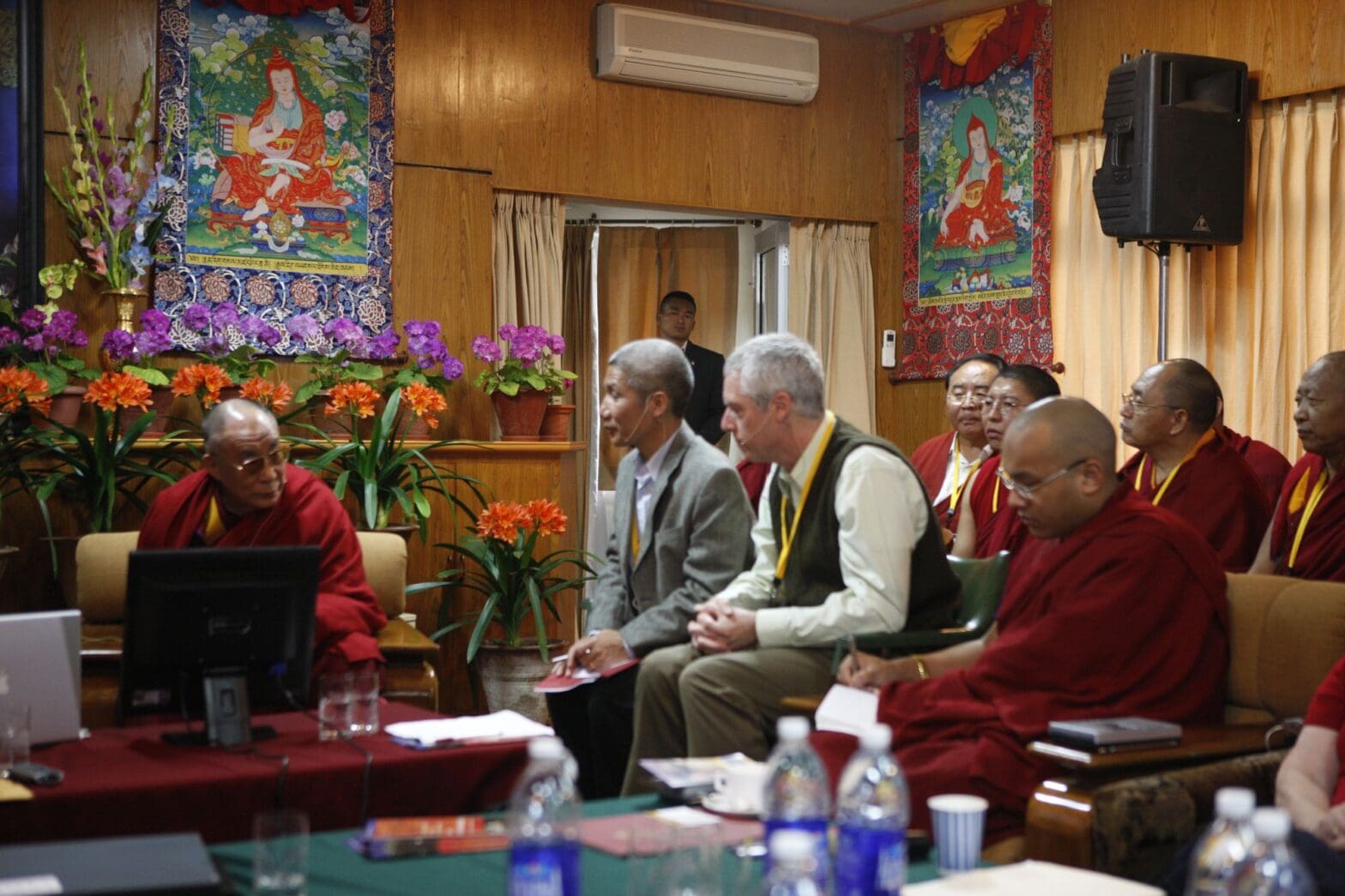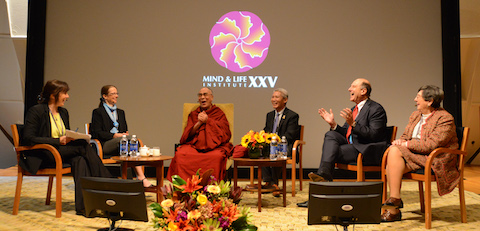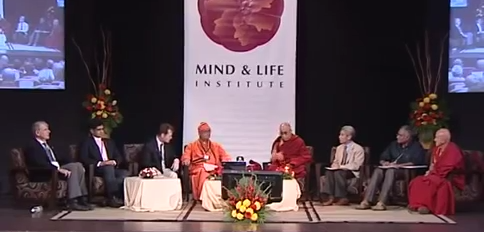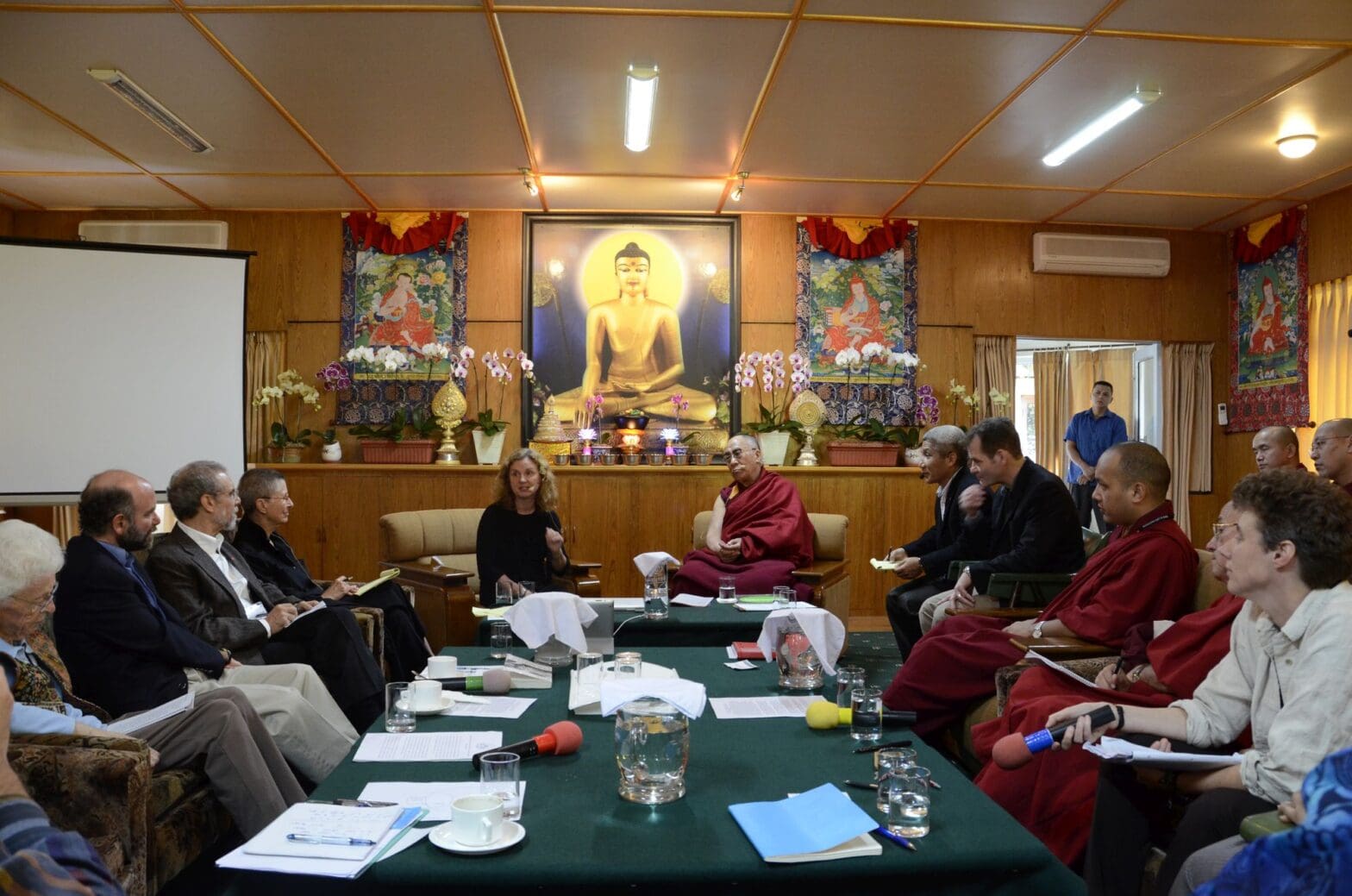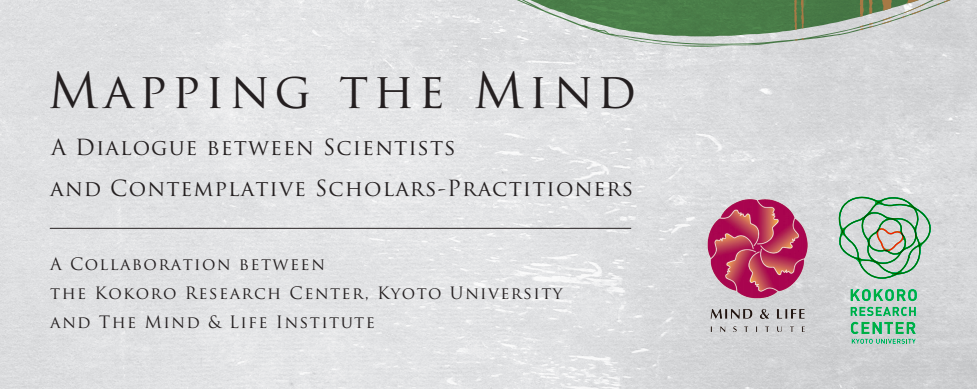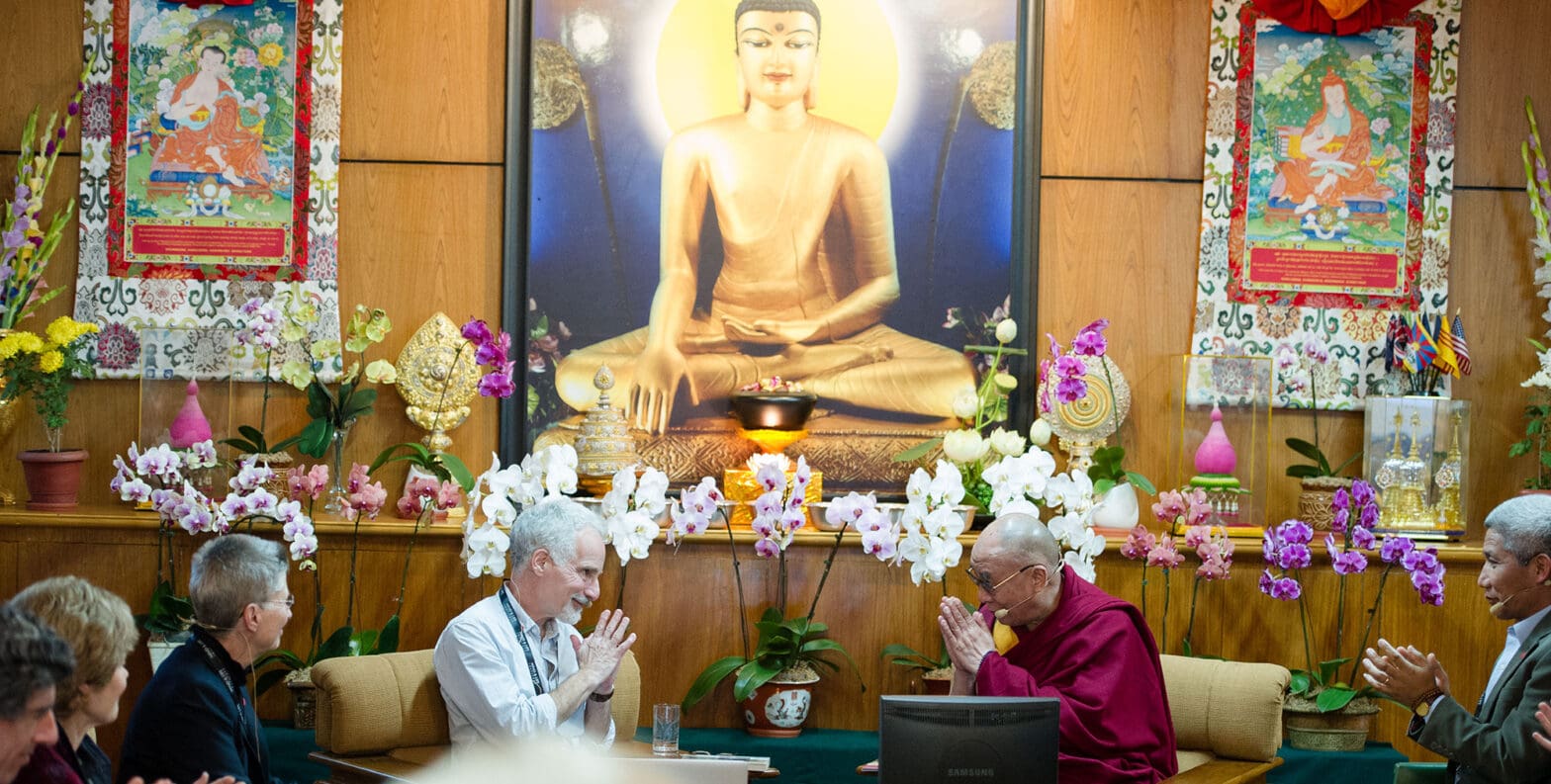This Dialogue reviews the current science and clinical applications of meditation, and identifies new lines of research on clinical applications of contemplative practices such as meditation within medicine. New scientific studies are beginning to show that meditation may have specific beneficial effects for helping patients cope with certain diseases and the stress associated with them, …
Convening Type Archives:
2003 Mind & Life Dialogue XI
From its inception Buddhism has probed the nature of mind, using the mind itself as its instrument of investigation, especially with the aid of refined meditation methods. For the past millennium, Tibetan Buddhists have pursued this investigation in monastic universities with rigor and exacting scholarship. Until now, science has been skeptical of this course of …
2005 Mind & Life Dialogue XIII
Though still in the early stages, there have been efforts to scientifically study the clinical application of meditative practices as well as the physiological effects of meditation in both novice and advanced practitioners. This Dialogue is a further opportunity for some of the scientists who have contributed most to this field to present their approaches …
2007 Mind & Life Dialogue XIV
In addition to being a scientific autobiography, the Dalai Lama’s book The Universe in a Single Atom: The Convergence of Science and Spirituality highlights those issues he feels are most important in the “convergence of science and spirituality.” In his book, the Dalai Lama includes ethical, philosophical, and metaphysical reflections prompted by science. These issues and questions …
2009 Mind & Life Dialogue XVIII
The discussions during this Dialogue will primarily focus on the subjective phenomenology, information-processing operations, and neural mechanisms of attention, memory, and conscious awareness from both scientific and Buddhist perspectives. Special attention will be focused on the distinctive characteristics and interactions of attention, memory, and metacognition as seen from diverse viewpoints, including the possibility of multiple dimensions …
2012 Mind & Life Dialogue XXV
For some years now, there has been a great deal of interest in the ways that contemplative practices with roots in spiritual traditions may also provide a range of emotional and physical benefits to practitioners. We now have a substantial body of experimental and clinical work focused both on outcomes and on the neural, cognitive, …
2010 Mind & Life Dialogue XXII
The impetus for this Mind & Life meeting stems from the Dalai Lama’s wish to have a Mind & Life meeting in Asia, particularly India. To this end, the conference brings together scientists, philosophers, and contemplative scholars and practitioners to discuss the benefits of contemplative science. In doing so, it provides a context for scientists …
2011 Mind & Life Dialogue XXIII
The slow meltdown of Earth’s capacity to sustain much of life, as we know it, poses an urgent challenge for both spiritual traditions and science. These two ways of knowing have developed distinctive responses, which are potentially synergistic. The goal of the meeting is to provide an opportunity to articulate an engaged environmental ethics. This …
2014 Mind & Life Dialogue XXIX
The nature of the human mind remains one of the most profound unresolved questions we face as a species. While the mind’s ultimate nature may forever elude us, we can nonetheless carefully study the mind’s characteristics, capabilities, and associated phenomena. We have mapped the human genome, the night sky and the fundamental particles of the …
2013 Mind & Life Dialogue XXVII
Desire is a natural part of life that provides the motivating force for our achievements. Our highest aspirations are animated by desire. Yet, when desire becomes obsession or craving, we cross over into the territory of suffering. What before was an aid to accomplishment can devolve into a source of personal anguish and social violence. …

